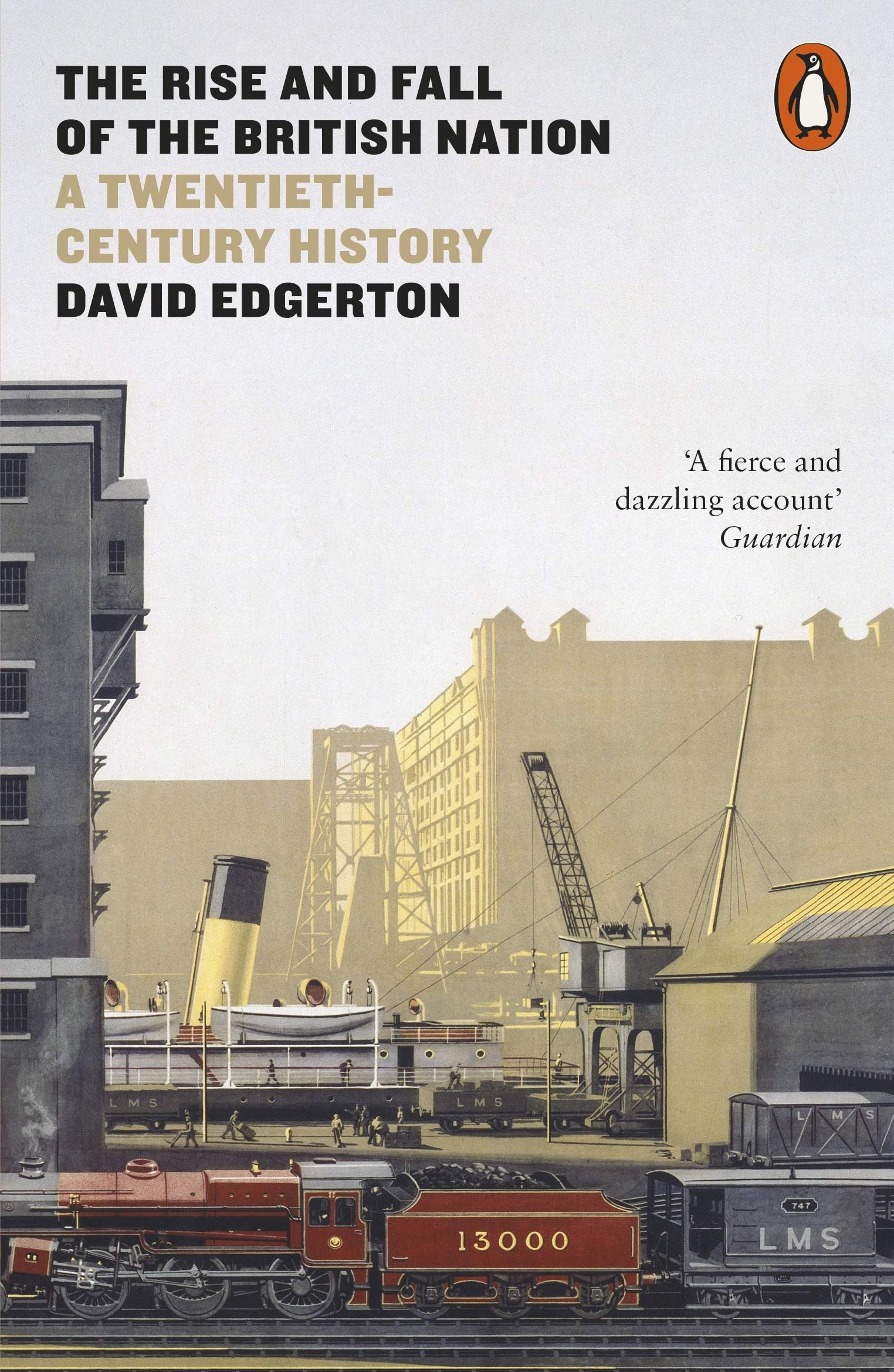Hover over and click on the titles to follow the links.
The Rise and Fall of the British Nation
‘Every so often a book comes along that the entire political class needs to read. … Edgerton is Britain’s most exciting and arresting late-modern historian. In a series of incisive, polemically charged and formidably researched books, … he has thoroughly defamiliarised the seemingly well-known contours of our recent past. His latest book, appearing on the eve of Brexit, challenges many of the fundamental preconceptions of Brexiteers and Remainers alike. There are no briskly dispensed panaceas here: this is political economy for grown-ups.’ Colin Kidd, New Statesman
‘… refreshing and immensely stimulating, and should be compulsory reading for anyone wanting to understand the reality of twentieth-century Britain. Lewis Namier, another historian known for his combative brand of scholarship, viewed iconoclasm as the judge of a great historian, that having produced an account of a period “others should not be able to practise within its sphere in the terms of the preceding era”. Edgerton has certainly achieved this.’ Oliver Hadingham, History.
‘…an arresting, provocative, and … rattlingly revisionist … magisterial account of twentieth-century Britain. … no reader can possibly leave this book without their understanding of recent British history being significantly reshaped. Edgerton’s account must surely stand as the best—and certainly the most interesting—general history of twentieth-century Britain yet written. … Britain’s historical imagination is free to roam again.’ Chris Otter, Journal of Modern History
England and the Aeroplane: Militarism, Modernity and Machines
The history of England and the aeroplane is one tangled with myths - of 'the Few' and the Blitz, of boffins, flying machines, amateur inventors and muddling through. In England and the Aeroplane David Edgerton reverses received wisdom, showing that the aeroplane is a central and revealing aspect of an unfamiliar English nation: a warfare state dedicated to technology, industry, empire and military power.
England had the strongest air force in the Great War, the largest industry in the world in the 1920s, outproduced Germany by 50% at the time of the Battle of Britain and was the third largest producers of aeroplanes well after this time. In a revelatory recounting of the story of aeronautical England, from its politics to its industry and culture, David Edgerton reconfigures some of the most important chapters of our history.
Britain's War Machine: Weapons, Resources and Experts in the Second World War
The familiar image of the British in the Second World War is that of the plucky underdog taking on German might. David Edgerton's bold, compelling new history shows the conflict in a new light, with Britain as a very wealthy country, formidable in arms, ruthless in pursuit of its interests and sitting at the heart of a global production system.
The British, indeed Churchillian, vision of war and modernity was challenged by repeated defeat by less well equipped enemies. Yet the end result was a vindication of this vision. Like the United States, a powerful Britain won a cheap victory, while others paid a great price. Britain's War Machine, by putting resources, machines and experts at the heart of a global rather than merely imperial story, demolishes some of the most cherished myths about wartime Britain and gives us a very different and often unsettling picture of a great power in action
The Shock of the Old: Technology and Global History since 1900
This first ever history of technology casts aside the usual stories of inventions and focuses instead on what people actually use. It reassesses the relationship of technology and society, using unrecognised examples such as Spanish synthetic petrol, Japanese rickshaws, American gas chambers, Soviet tractors and Turkish battleships. We do not live in an era of ever increasing change, and the most important technologies of the twenty first century are often overlooked today. Drawing on political, economic and cultural history, The Shock of the Old dispels misplaced futurism and exemplifies a radical new way of looking at our world.
Warfare State: Britain, 1920-1970
A challenge to the central theme of the existing histories of twentieth-century Britain, that the British state was a welfare state, this book argues that it was also a warfare state, which supported a powerful armaments industry. This insight implies major revisions to our understanding of twentieth-century British history, from appeasement, to wartime industrial and economic policy, and the place of science and technology in government. David Edgerton also shows how British intellectuals came to think of the state in terms of welfare and decline, and includes a devastating analysis of C. P. Snow's two cultures. This groundbreaking book offers a new, post-welfarist and post-declinist, account of Britain, and an original analysis of the relations of science, technology, industry and the military. It will be essential reading for those working on the history and historiography of twentieth-century Britain, the historical sociology of war and the history of science and technology.
Science, technology and the British industrial 'decline' 1870-1970
The place of science and technology in the British economy and society is widely seen as critical to our understanding of the British 'decline'. There is a long tradition of characterising post-1870 Britain by its lack of enthusiasm for science and by the low social status of the practitioners of technology. David Edgerton examines these assumptions, analysing the arguments for them and pointing out the different intellectual traditions from which they arise. Drawing on a wealth of statistical data, he argues that British innovation and technical training were much stronger than is generally believed, and that from 1870 to 1970 Britain's innovative record was comparable to that of Germany. This book is a comprehensive study of the history of British science and technology in relation to economic performance. It will be of interest to scientists and engineers as well as economic historians, and will be invaluable to students approaching the subject for the first time.





